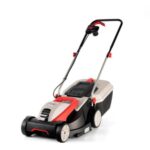How to Clean a Riding Lawn Mower Carburetor? A riding yard cutter can stay all ready with ordinary support. Carburetor cleaning is a run of the mill need for a basic part. Keeping the carburetor clean further develops motor execution and gas mileage.
Whenever you’ve perused this complete aide and acquired some confidence, cleaning the carburetor of a riding grass cutter will be a breeze. Let’s read below about “How to Clean a Riding Lawn Mower Carburetor?”
Table of Contents
Understanding the Carburetor:
Before you begin cleaning the carburetor, ensure you know how it works in the driving force of a riding yard cutter. Carburetor makes sure that fuel and air are appropriately consolidated before combination enters burning chamber. At the point when soil, stain, and flotsam and jetsam amass in the carburetor over the long run, it prevents the two its capability and the motor’s smooth activity.
Tools and Materials:
Before you begin cleaning the carburetor, assemble the vital materials as a whole. Here are the things you’ll require:
- Drills, wrenches, and screwdrivers
- Driving rod cleaner
- Safeguarding yourself against packed air dangers defensive eyewear and hand insurance from
- Clean clothes or towels
- A fuel can
Gaskets and O-rings are close by in the event of a crisis.
Safety Precautions:
Ensure you are absolutely protected prior to working any instrument. Ensure you follow these wellbeing precautionary measures prior to endeavoring to clean the carburetor on your riding grass trimmer:
- Place the mower in a flat, level location.
- Permit the motor to chill off completely.
- Detach the flash attachment wire to forestall unintentional beginnings.
- Put on your security goggles and gloves to stay away from mischief to your eyes and hands.
Working in a very much ventilated space will protect you from exhaust.
Step-by-Step Guide: How to Clean a Riding Lawn Mower Carburetor
Adhering to these guidelines will make cleaning the carburetor of your riding lawnmower a breeze:
Step 1: Locate the Carburetor
The carburetor is by and large situated on the motor and is associated with the fuel line and air channel. Allude to your trimmer’s manual for the specific area of the carburetor.
Step 2: Remove the Air Filter Housing
To get to the carburetor, eliminate the lodging of the air channel. Use a wrench or a screwdriver to free the screws and bolts holding the housing in place. When taken out, put the air channel away.
Step 3: Disconnect the Fuel Line
Find the area of the fuel line that interfaces with the carburetor. Putting a holder or petroleum could underneath the gas at any point line will save fuel.
Step 4: Remove the Carburetor
To eliminate the carburetor from the motor, slacken the nuts that append it. Carefully remove the throttle assembly from the carburetor. Handle the carburetor expulsion from the motor with care.
Step 5: Disassemble the Carburetor
You can start dismantling it part by part now that the carburetor is eliminated. It is basic to review the exact area of every part prior to reassembling. Observe for any gaskets or O-rings that may require replacement.
Step 6: Clean with Carburetor Cleaner
Shower the carburetor with a top notch cleaner in the wake of cleaning it. Give close consideration to the small planes and tubing in the carburetor. Getting rid of hard-to-reach residues might be easier with a brush or toothbrush. Guarantee that the cleaning completely enters all region of the carburetor.
Step 7: Use Compressed Air
To take out any excess garbage or cleaner in the wake of applying the carburetor cleaner, victory the paths utilizing compacted air. Doing so guarantees an exhaustive cleaning and helps in eliminating buildup, the two of which are basic for max execution.
Step 8: Inspect and Replace Components
Inspect and Replace Components By inspecting each component, you can ensure that the carburetor is free of corrosion, wear, and degradation. Assuming you have harmed gaskets and O-rings, get substitutions. To take advantage of your cutter, just use new parts made for your particular model.
Step 9: Reassemble the Carburetor
Reassemble the carburetor by dismantling it from the opposite side. Verify that each component is positioned appropriately and in its designated location. Be mindful so as not to overtighten the nuts, as this could harm the carburetor lodging.
Step 10: Reconnect the Fuel Line
Return the petroleum line to its attachment on the carburetor. To forestall any potential breaks, ensure everything is safely attached. You ought to change the petroleum line assuming you see any indications of wear or erosion.
Step 11: Install the Carburetor Back on the Engine
Cautiously reinstall the carburetor onto the motor in the wake of cleaning and gathering. Make sure to reattach any broken throttle cables or links when you take it apart. Make sure that the carburetor is firmly attached by turning the bolts anticlockwise.
Step 12: Reinstall the Air Filter Housing
Cautiously reinstall the air channel onto the carburetor prior to putting it back into its lodging. At the point when you fix the fasteners or screws, you’re ensuring that no air can escape.
Step 13: Reconnect the Spark Plug Wire
Reinstall the flash attachment and reattach the wire to the motor. Give close consideration to the securing to forestall any inadvertent beginnings.
Step 14: Test the Mower
Start the riding lawnmower and let it run for a few minutes after you’ve cleaned and replaced the carburetor. Focus on the motor’s presentation and tune in for any uncommon sounds. It ought to be not difficult to begin and keep a consistent inactive speed for the motor.
Step 15: Adjust if Necessary
Modify as Needed If the engine is having performance issues like having trouble starting or idling irregularly, a new carburetor may be needed. Counsel your cutter’s guidance manual for subtleties on the best way to change the carburetor.
Conclusion:
Cleaning the carburetor routinely is a significant piece of keeping up with your riding yard trimmer and expanding its life. You can without hesitation clean your cutter’s carburetor and keep up with it in top shape assuming you heed this exact direction. Look at the manual to find out what your mower needs to keep working well. Expecting you treat your riding yard trimmer with the regard it merits, keeping your grass will be an easy task. I hope you like reading “How to Clean a Riding Lawn Mower Carburetor?”

Barry, the expert behind LawnInspection.com, holds a Master’s degree in Horticulture and brings over 20+ years of hands-on experience in landscaping and lawn care. With certifications in sustainable lawn management, Barry is dedicated to providing readers with authoritative insights and practical tips for maintaining lush, healthy lawns. His extensive knowledge and commitment to excellence ensure that every piece of advice on LawnInspection.com helps transform your lawn into a green oasis with proven, eco-friendly practices. Connect with Barry on social media: Instagram and Facebook.











